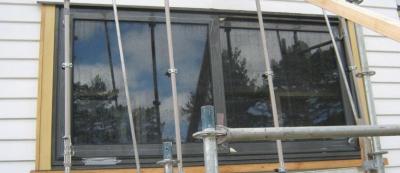Building inspection pass rates are improving, but the substitution of inferior building products is still blighting the construction industry writes Alexia Russell for Newsroom
Cheap, inferior alternatives being used in housing projects as substitutes for code-compliant products are the number one bugbear of Auckland Council's inspectors. The inspectors say they are picking up most of the problems, but the work required to remedy such situations is holding up the city's much needed home-building programme. Tradesmen, on the other hand, believe a lot is being missed and they're sick of seeing products that have potentially disastrous repercussions further down the line, entering the country.
A highly successful recruiting drive in Canada by the council will help the situation. There are now has 12 new, fully-trained building inspectors on the job after a trip on which Auckland Council Building Control General-Manager Ian McCormick sheepishly admits selling the country as a package by showing them lots of pretty pictures.
The current building boom means the council's facing a situation where it invests heavily in staff training, only to see those people lost to desperately-needed project managing jobs in the industry.
McCormick says without a doubt the biggest problem for him at the moment is site supervision - having competent people guide and support increasingly complex builds, and engage and manage a host of subcontractors and specialists. "We are finding in the industry that too often project managers are having to run many jobs concurrently, racing from job to job," he says. "Project managers are going into jobs more complex than in the past, and in some cases are struggling."
Continue to read the full article here on Newsroom || 11 September 2017 |||

